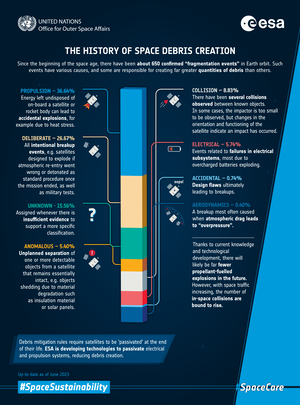

Battery passivation
Compact lithium batteries, like those in your smartphone, are integral to making future space missions more efficient.
While we know the commonplace stories of batteries catching fire on planes, we still don’t know the full extent of how batteries will behave after several years in orbit, due to radiation and uncontrolled temperature ranges or unregulated power control leading to potential overcharge and even in-orbit explosions.
Disposing of space debris is one of the greatest challenges facing ESA and the space industry at the moment. Airbus Defence and Space (France), in partnership with CEA (France) and the two main European battery manufacturers for space Saft (France) and ABSL (England) have just closed an activity with the Technology Development Element programme (TDE). The activity was part of the Clean Space campaign to assess the best way to make safe or completely deplete a spacecraft’s battery at the end of a mission so it can be disposed of correctly.





